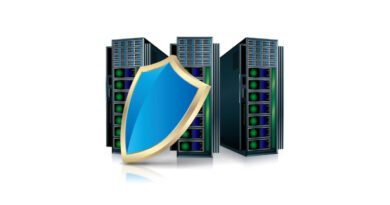AWS Web Application Firewall For E-Commerce: Protecting Online Stores From Cyber Threats
With the growing dependence on e-commerce, online stores have become prime targets for cybercriminals. Threats such as SQL injection, cross-site scripting (XSS), distributed denial-of-service (DDoS) attacks, and bot-generated traffic can compromise customer data, disrupt operations, and damage business reputations. AWS Web Application Firewall (AWS WAF) is a security service designed to protect e-commerce platforms from these cyber threats. By monitoring and filtering HTTP(S) traffic to web applications, AWS WAF helps mitigate vulnerabilities and ensures seamless online shopping experiences.
The Importance Of Cybersecurity For E-Commerce Platforms
E-commerce businesses process high volumes of transactions daily, making them lucrative targets for cybercriminals. Cyberattacks can lead to financial losses, data breaches, regulatory fines, and loss of customer trust. Implementing a robust security solution like AWS Web Application Firewall is crucial to safeguarding customer information, payment data, and business continuity. AWS WAF provides a proactive approach to security by identifying and blocking malicious traffic before it reaches critical web applications.

Key Features Of AWS Web Application Firewall
AWS WAF offers several features that make it an ideal choice for securing e-commerce platforms:
- Rule-Based Filtering – AWS WAF allows businesses to create security rules that define acceptable web requests, blocking threats such as SQL injection, XSS, and unauthorized access.
- Managed Rule Groups – AWS provides pre-configured rule sets managed by security experts to protect against common web vulnerabilities.
- Bot Mitigation – AWS WAF can detect and prevent bot-driven attacks, such as credential stuffing and web scraping, which could compromise e-commerce operations.
- DDoS Protection – When integrated with AWS Shield, AWS WAF helps prevent DDoS attacks that could overwhelm an online store’s servers.
- Real-Time Monitoring & Logging – Businesses can monitor traffic patterns and security threats in real-time, enabling proactive threat response.
- Customizable Security Policies – E-commerce platforms can tailor AWS WAF rules based on business needs and evolving cyber threats.
How AWS WAF Protects Online Stores?
1. Defending Against SQL Injection and XSS Attacks
AWS WAF prevents attackers from injecting malicious SQL code into an e-commerce website’s database, protecting sensitive customer data and transaction details. The firewall also blocks XSS attacks, which cybercriminals use to execute malicious scripts on user browsers, potentially leading to session hijacking or data theft.
2. Stopping Automated Bots and Scrapers
Many cybercriminals deploy bots to scrape product prices, manipulate inventory levels, or launch credential-stuffing attacks. AWS WAF’s bot control features help detect and block unwanted bot traffic, ensuring that only legitimate customers interact with the online store.
3. Mitigating DDoS Attacks
E-commerce websites can become targets of DDoS attacks, which flood web servers with excessive traffic to cause downtime. AWS WAF, in combination with AWS Shield, helps detect and mitigate these attacks, maintaining website availability even during high-traffic periods.
4. Preventing Data Breaches
Data breaches are a significant concern for e-commerce businesses handling customer credentials and payment information. AWS WAF enhances security by filtering out malicious requests, ensuring compliance with industry standards such as PCI DSS (Payment Card Industry Data Security Standard).
Implementing AWS WAF For E-Commerce Security
To maximize the effectiveness of AWS Web Application Firewall, e-commerce businesses should follow best practices:
- Set Up AWS WAF with CloudFront or Application Load Balancer – AWS WAF integrates seamlessly with Amazon CloudFront and Application Load Balancer, ensuring that security measures are applied at the edge locations and before traffic reaches web servers.
- Use AWS Managed Rules – Implement AWS-managed rule sets for comprehensive protection against known vulnerabilities.
- Define Custom Rules – Customize security policies based on the website’s traffic patterns and security needs.
- Monitor and Analyze Logs – Regularly review AWS WAF logs to identify attack patterns and refine security rules accordingly.
- Enable Rate-Based Rules – Protect against brute-force attacks by setting limits on the number of requests from a single IP address.
- Integrate AWS Security Hub – Combine AWS WAF with AWS Security Hub for a centralized security management system.
Benefits Of Using AWS WAF For E-Commerce
- Enhanced Security – AWS WAF provides advanced threat protection, reducing the risk of cyberattacks and data breaches.
- Cost-Effective Solution – Businesses can choose pay-as-you-go pricing, ensuring they only pay for what they use.
- Seamless Scalability – AWS WAF scales with the e-commerce platform, providing security even during peak traffic periods.
- Compliance with Security Regulations – AWS WAF helps e-commerce sites comply with data security regulations and standards.
- Improved Website Performance – By blocking malicious traffic, AWS WAF reduces server load and enhances user experience.
Conclusion
E-commerce businesses must prioritize cybersecurity to protect their websites, customer data, and financial transactions from cyber threats. AWS Web Application Firewall is a powerful solution that offers rule-based filtering, bot mitigation, DDoS protection, and real-time monitoring to safeguard online stores from cyber risks. By implementing AWS WAF effectively, businesses can ensure a secure shopping environment, build customer trust, and maintain a competitive edge in the digital marketplace.




